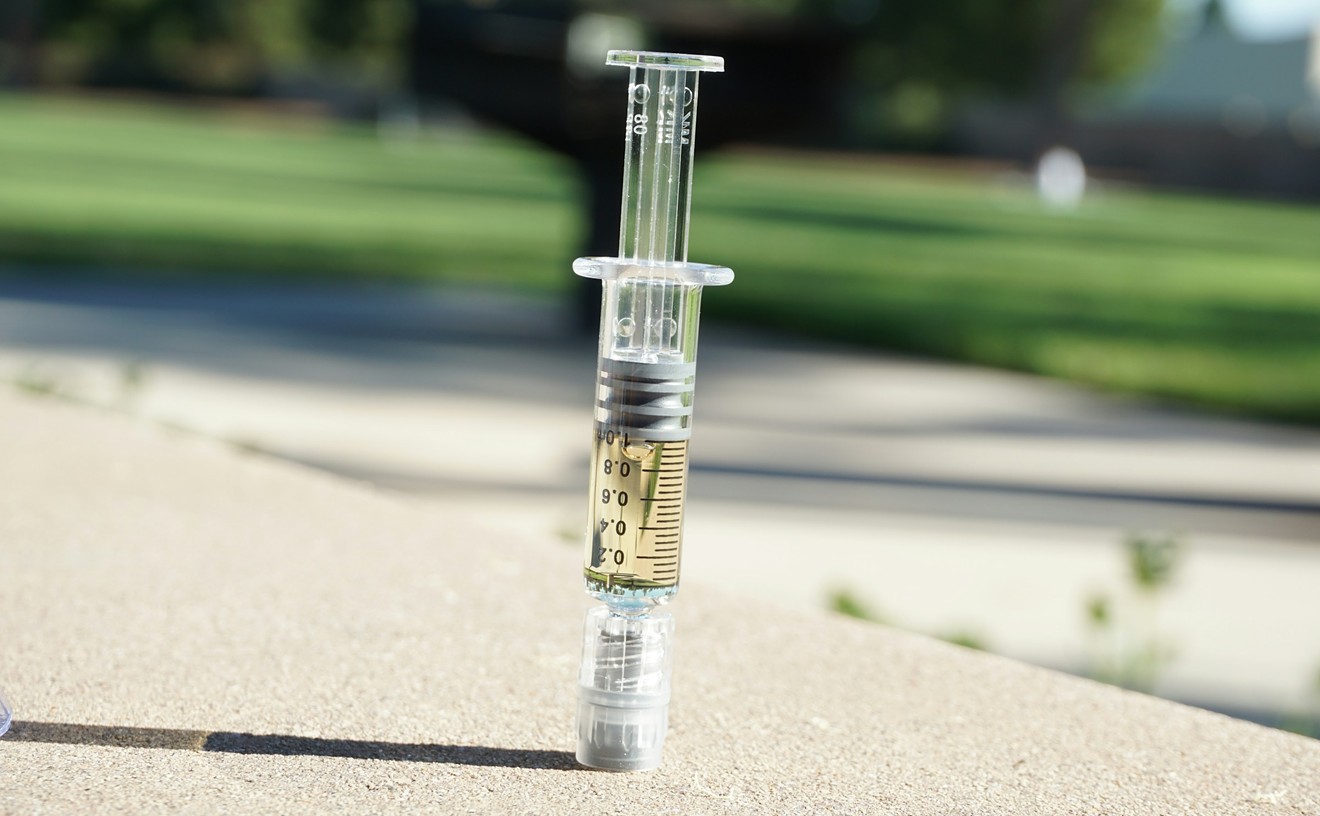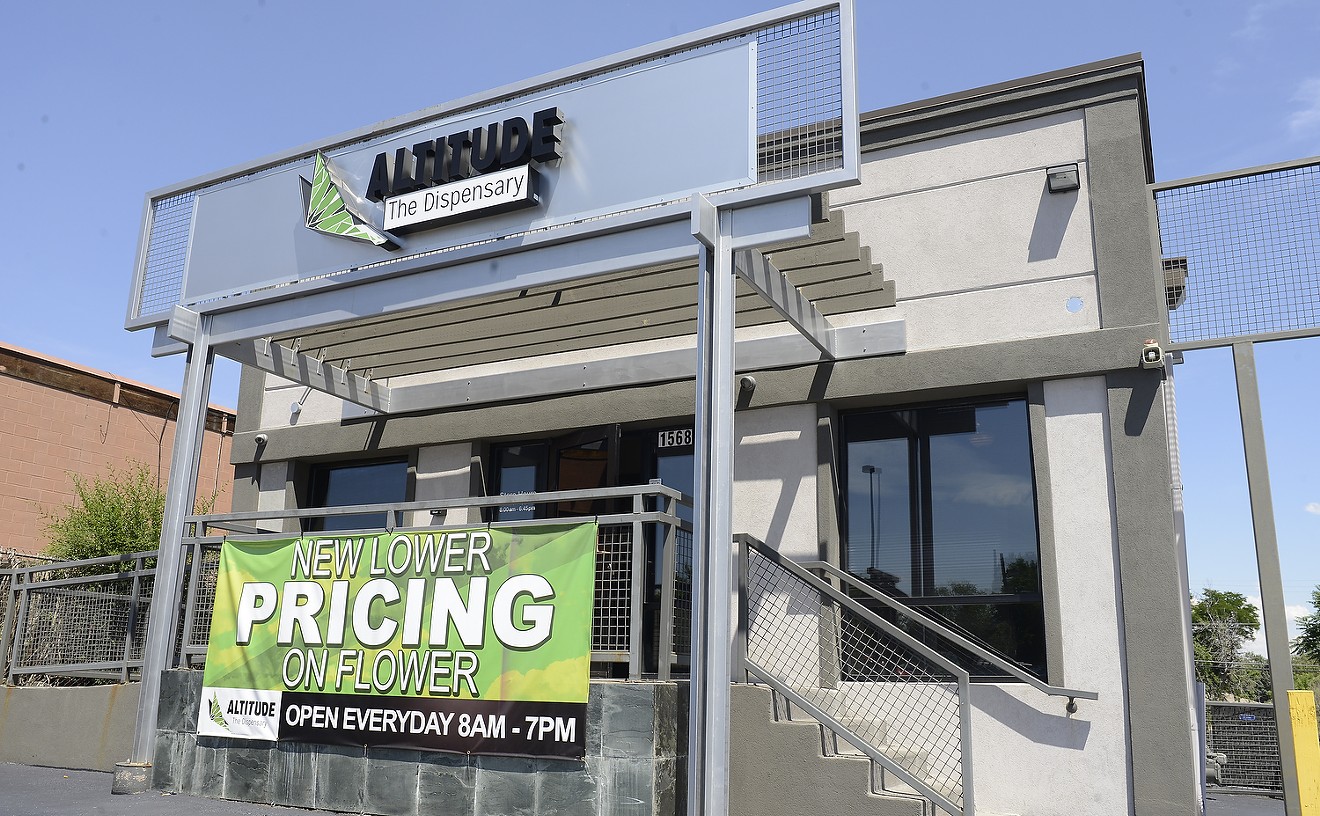Cannabis lovers notched a very public win last week after a recent study claimed that regular cannabis users in America now outpace daily alcohol users. Colorado residents are ahead of both trends, however.
According to compiled information from the U.S. National Survey on Drug Use and Health, about 17.7 million people across the country identified as daily or near-daily users in 2022, compared to 14.7 million daily or near-daily drinkers that year.
"In 2022, past-month cannabis consumers were almost four times as likely to report daily or near-daily use (42.3% vs. 10.9%)," the study reads.
In Colorado, where recreational cannabis has been legal since 2012, daily use is ahead of national trends, according to state data — and so is heavy drinking. According to survey data compiled by the Colorado Department of Public Health & Environment in 2022, a little over 49 percent of adult cannabis users in Colorado admitted to daily or near-daily use, while CDC data from the same year showed that almost 21 percent of alcohol drinkers in Colorado considered themselves "heavy" or "binge" drinkers.
According to the CDC, binge drinking was defined as four or more drinks in one sitting for women and five or more drinks for men within the past thirty days; heavy drinking was defined as having eight or more drinks in a week for women and fifteen or more drinks in a week for men. Neither the state or federal studies included a definition of "near-daily" use.
While the most recent study on daily alcohol and cannabis users, first reported by the Associated Press, noted that overall alcohol use among Americans still outpaces overall cannabis use, the author pointed out one big difference between cannabis and alcohol consumption: Weed smokers like to do this every day.
"Far more people drink, but high-frequency drinking is less common," wrote study author Jonathan Caulkins, who described his findings as "striking."
As public support for recreational legalization grows and more states experience "policy liberalization," more long-term cannabis users likely "parallel corresponding changes in cannabis policy," Caulkins wrote in the study, published by the Society for the Study of Addiction.
"That does not mean that policy drove changes in use. Both could have been manifestations of changes in underlying culture and attitudes," he noted. "However, whichever way causal arrows point, cannabis use now appears to be on a fundamentally different scale than it was before legalization."
How we view daily consumption of both substances could play a large factor, according to Caulkins, with daily use of cannabis largely viewed as means to relax or improve wellness. In an interview with the AP, he said that comparing cannabis and tobacco users is more apt than cannabis and alcohol.
There is also a medical aspect to consider.
Medical marijuana is currently legal in some form in 38 states across the country for a vast range of ailments, pains and diseases, and several branches of federal government, including the White House, have officially recognized cannabis' medical benefits by recommending the plant be reclassified from a Schedule I substance to Schedule III.
Alcohol, which isn't a federally controlled substance, isn't considered as medically beneficial for users, either — although moderate red wine consumption has been associated with smaller chances of diabetes, gallstones and heart disease.
Despite the medicinal associations with cannabis, however, most research shows that high-frequency users are more likely to develop an addiction. As cannabis acceptance increases, the impact of addiction and heavy use on society could become more noticeable, according a 2019 study also published in the Society for the Study of Addiction.
"Despite the growing societal burden, our knowledge of the long‐term effects of heavy cannabis use and CUD on brain‐related outcomes is extremely limited. Heavy and dependent cannabis use is consistently associated with a high prevalence of comorbid psychiatric disorders and with learning and memory impairments that seem to recover after abstinence," part of the study reads.
[
{
"name": "Air - MediumRectangle - Inline Content - Mobile Display Size",
"component": "12017618",
"insertPoint": "2",
"requiredCountToDisplay": "2"
},{
"name": "Editor Picks",
"component": "17242653",
"insertPoint": "4",
"requiredCountToDisplay": "1"
},{
"name": "Inline Links",
"component": "18838239",
"insertPoint": "8th",
"startingPoint": 8,
"requiredCountToDisplay": "7",
"maxInsertions": 25
},{
"name": "Air - MediumRectangle - Combo - Inline Content",
"component": "17261320",
"insertPoint": "8th",
"startingPoint": 8,
"requiredCountToDisplay": "7",
"maxInsertions": 25
},{
"name": "Inline Links",
"component": "18838239",
"insertPoint": "8th",
"startingPoint": 12,
"requiredCountToDisplay": "11",
"maxInsertions": 25
},{
"name": "Air - Leaderboard Tower - Combo - Inline Content",
"component": "17261321",
"insertPoint": "8th",
"startingPoint": 12,
"requiredCountToDisplay": "11",
"maxInsertions": 25
}
]












